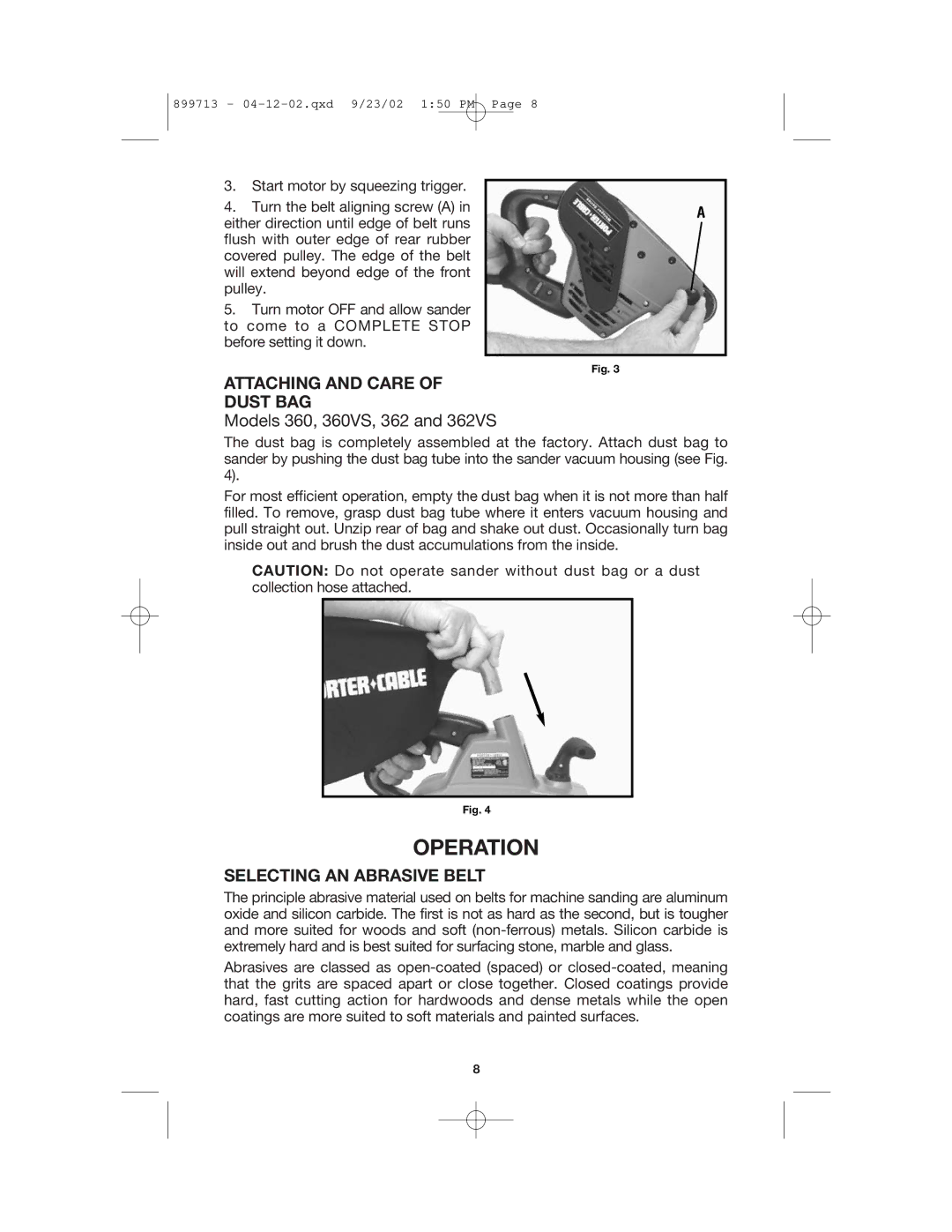
899713 -
3.Start motor by squeezing trigger.
4.Turn the belt aligning screw (A) in either direction until edge of belt runs flush with outer edge of rear rubber covered pulley. The edge of the belt will extend beyond edge of the front pulley.
5.Turn motor OFF and allow sander to come to a COMPLETE STOP before setting it down.
A
Fig. 3
ATTACHING AND CARE OF
DUST BAG
Models 360, 360VS, 362 and 362VS
The dust bag is completely assembled at the factory. Attach dust bag to sander by pushing the dust bag tube into the sander vacuum housing (see Fig. 4).
For most efficient operation, empty the dust bag when it is not more than half filled. To remove, grasp dust bag tube where it enters vacuum housing and pull straight out. Unzip rear of bag and shake out dust. Occasionally turn bag inside out and brush the dust accumulations from the inside.
CAUTION: Do not operate sander without dust bag or a dust collection hose attached.
Fig. 4
OPERATION
SELECTING AN ABRASIVE BELT
The principle abrasive material used on belts for machine sanding are aluminum oxide and silicon carbide. The first is not as hard as the second, but is tougher and more suited for woods and soft
Abrasives are classed as
8
